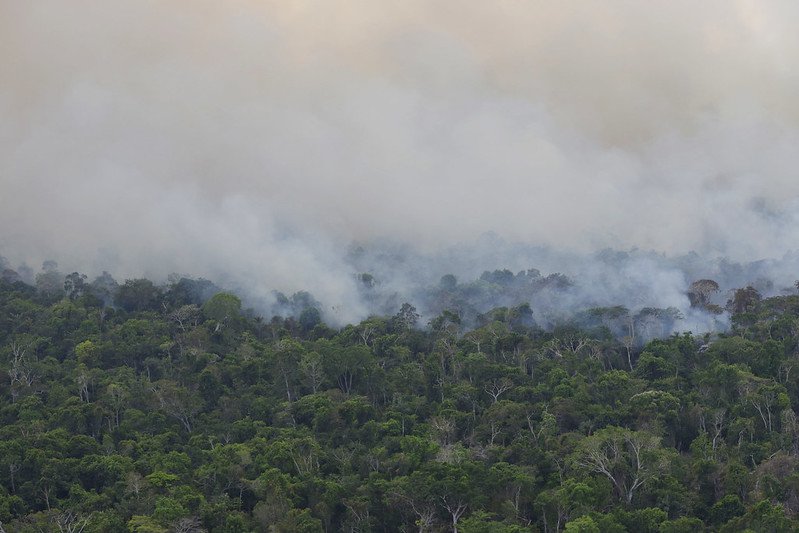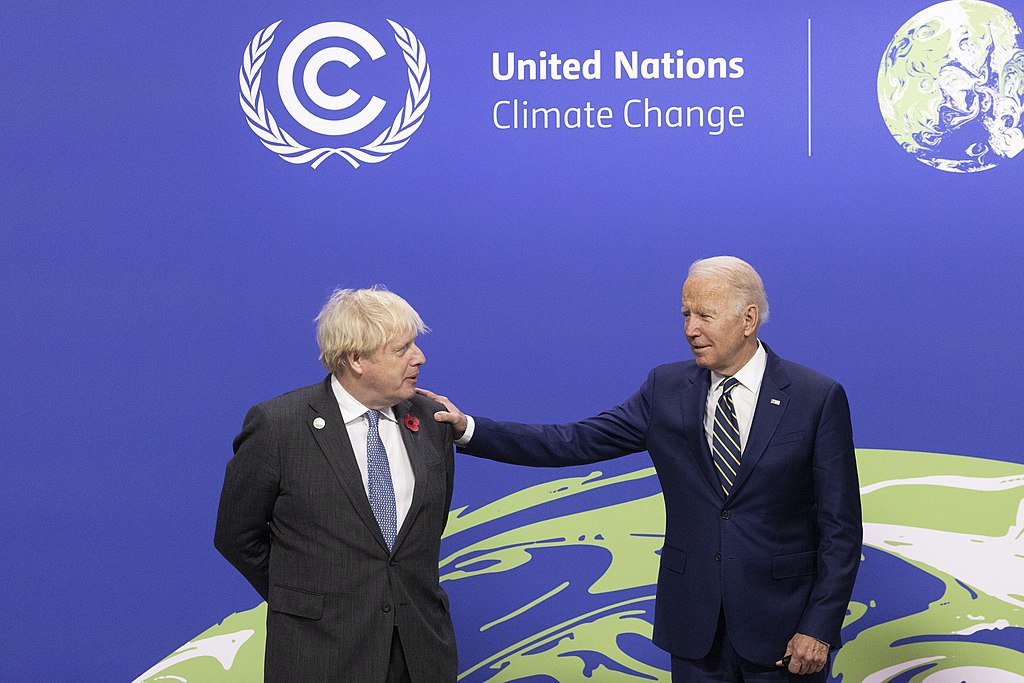With COP27 fast approaching, governments should be ready to deliver when returning to their annual climate get-together – this time being held in the Egyptian beach resort of Sharm-el-Sheikh – and come prepared with something more than warm words and a bottle of sunscreen. The Global Witness Forests team will be looking for news of clear plans by finance hubs including the UK, US, EU, and China to end the money pipeline driving deforestation.
The need for strong action at the national level to protect forests and people is more vital than ever. The IPCC’s warning is stark. It is not possible to keep below 1.5 degrees of global heating without stopping deforestation and land degradation. A key driver of deforestation and land degradation is agricultural expansion. Forests were rightly in the spotlight at COP26 in Glasgow. It is now vital to maintain that momentum in Sharm el-Sheikh and ensure companies and governments deliver on their pledges.
At COP 26, 145 countries signed the Glasgow Leaders’ Declaration On Forests And Land Use, which promised to reverse forest loss and land degradation by 2030 and to align financial flows accordingly. Whilst such ambition is welcome, it’s not the first time world leaders have made such a pledge. The 2014 New York Declaration on Forests had the same objective; it aimed to halve deforestation by 2020. It failed miserably.
History is at great risk of repeating itself. In July this year, deforestation rates in the Brazilian Amazon hit a six year high. In neighbouring Bolivia, deforestation of primary forests hit over almost three hundred thousand hectares in 2021, the highest level in over twenty years. New research shows that the Amazon rainforest may be approaching a tipping point where it will no longer be able to sustain itself and start to become savannah. This will cause mass dieback and cause the Amazon to emit more carbon than can be absorbed. Some studies suggest we may have arrived at this point already.

The Amazon rainforest. Chico Batata / Greenpeace Creative Commons
The policies of forest rich countries, such as Brazil, are important in reversing these trends. Yet so too are the policies of consumer countries and financial centres responsible for vast flows of capital that enable and reward agribusinesses driving the destruction of biodiversity and the territories of Indigenous groups and local communities.
We should expect to hear lots about finance at COP27 – with the Glasgow Financial Alliance for Net Zero (GFANZ) likely to play a prominent role again. This club of financial players has eye-watering amounts of money under management. But we shouldn’t be bamboozled by the sums. As we said last year, such voluntary initiatives have a dismal record in achieving change.
Global Witness’ Deforestation Dividends report – launched in the run up to COP26 last year – showed that between 2016 and 2020 banks and asset managers based in UK, USA, EU, and China made deals worth an estimated $157 billion to just 20 agri-businesses implicated in deforestation. Global Witness will publish new data on investment in forest risk companies in the run up to COP27.
Governments in each of these jurisdictions need to take urgent action to address the money pipeline to deforestation and live up to their Glasgow commitments. While there are legislative proposals on the table in each jurisdiction, the key decision makers are yet to get them over the line.
COP27 will see the first meeting of the Forests & Climate Leaders’ Partnership (FCLP) convened by the UK, which could help maintain pressure on all countries to deliver in these ways and stick to their Glasgow commitments. The UK plays a particularly important role as a key architect of the forest pledge made in Glasgow, yet its own house is not yet in order.
The UK is both a significant financier and consumer of forest risk commodities such as palm oil, soya, and beef, amongst others. Almost a year after the Environment Act was passed – which promised to address the UK’s deforestation footprint – we are still awaiting implementation of new laws to tackle deforestation in its supply chains. Worse, the government is yet to act to stop British bankers’ investments and financing from destroying rainforests.
The EU perhaps has the best story to tell. Uniquely, the European Parliament recently voted to stop the money pipeline from European banks for deforestation. EU national governments and the European Commission now have the opportunity to step up and agree to it in final negotiations to ensure adoption of a law that is fit for purpose.
The US government has so far lagged behind both the UK and the EU, but has a chance to get its regulation right first time by including financiers in the scope of any new due diligence regime. Following a Presidential Order by Biden for a ‘whole of government’ review into deforestation in the US and abroad, it is finally consulting on possible legislation. Any new regulations will need to stop Wall Street driving forest destruction alongside supply chain interventions. We hope the US will come to the table in Egypt with something concrete to offer.

Joe Biden with then UK Prime Minister Boris Johnson at COP26. UKinUSA from Washington, D.C / Creative Commons
China’s actual progress in tackling global deforestation remains slow, despite signing the Glasgow Leaders’ Declaration. Today, China still lacks a clear legal prohibition on illegal timber imports: it has twice missed the opportunity to do so when revising its forest law and formulating related implementation rules. Chinese financial regulators must now seize the opportunity to stipulate environmental and social risk management requirements in the ongoing revision of the commercial banking law.
The FCLP itself faces an uphill struggle. Its stated action areas include laudable aims such as achieving sustainable supply chains and supporting indigenous people and land tenure rights. However, there are also areas mentioned which set alarm bells ringing. These include the push for “high-integrity” carbon markets and “forest positive” solutions - often a synonym for “nature based solutions” which are at best ineffective and at worst, pure greenwashing.
We hope that the FCLP will recognise and promote the notion that when it comes to saving forests, legislation is desperately needed. And when it comes to legislation, change begins at home. We have heard the warm words and good intentions. What is needed now is national backing for game-changing laws. It is not only the legacy of the UK’s COP Presidency at stake here, but the health of the planet.


